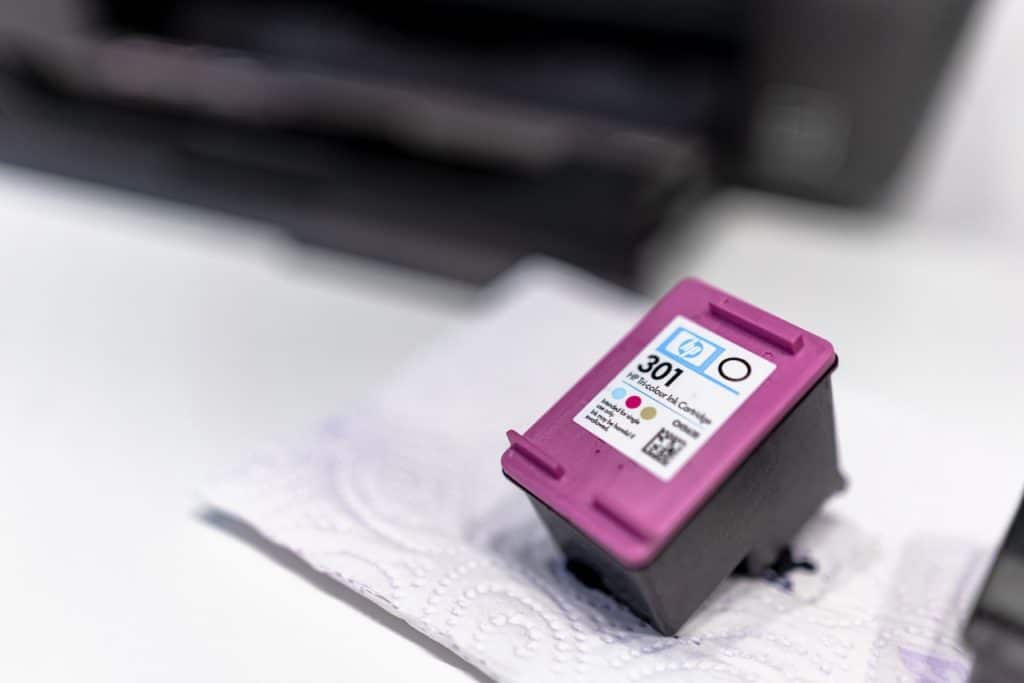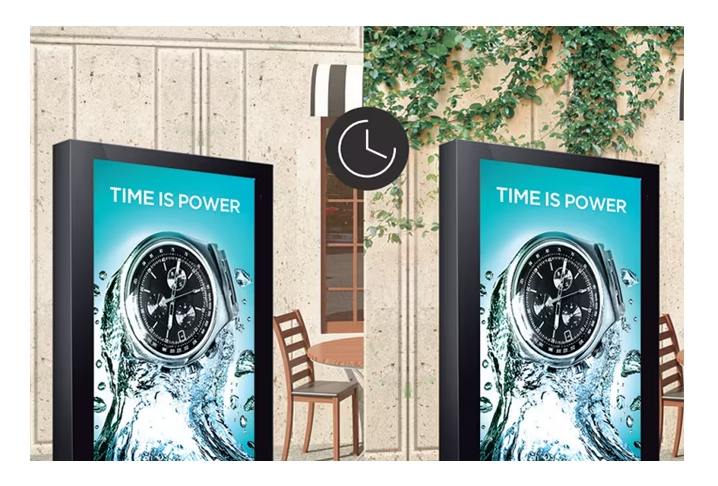In an era where sustainability and environmental responsibility are at the forefront of business practices, digital signage emerges as a powerful ally in the journey towards a greener future. While digital signage is not completely free of environmental costs, its impact is relatively small, especially compared to its analog counterpart paper. As businesses seek ways to minimize their ecological impact, digital signage offers a range of eco-friendly advantages that align with sustainability goals. In this article, we will explore five ways digital signage contributes to a more environmentally friendly approach and how it aids in preserving the planet. From reducing paper waste to promoting energy efficiency and responsible recycling, let’s delve into the green benefits of embracing digital signage as a sustainable solution.

1. Reduced Paper Usage
One of the most obvious environmental benefits of digital signage displays is that they practically eliminate the need for paper signage. Without the need for paper banners, posters, and promotional materials businesses can significantly reduce the amount of paper they use. One digital signage screen can do the job of any number of different posters and advertisements at once, saving space and waste. Furthermore, thanks to their long lifespan and limited power usage, digital displays will last long into the future ensuring you don’t have to revert back to paper anytime soon. This conservation effort not only saves trees but also reduces energy consumption and waste associated with printing and disposal.

2. Efficient Energy Consumption
Digital signage is designed to be energy efficient and long lasting, while still maintaining maximum performance. Advances in display technology have led to the development of energy-efficient LED and OLED screens that consume minimal energy while delivering bright, vibrant, and eye-catching images 24/7. Additionally, digital signage’s ability to schedule content in advance and sleep during non-business hours further helps reduce energy consumption and ensure your business is as green as possible.

3. Minimized Chemical Waste
Chemical waste isn’t something you typically think of when you think of paper signage, however the printing process often involves several different chemicals and inks that can severely harm the environment. Digital signage eliminates these chemicals and inks from the equation entirely, making it the cleaner and greener advertising option. Over the long lifespan of your digital signage display, every piece of paper saved is also ink and chemicals that are not harming the environment.

4. Remote Content Management
Remote content management is one of the most convenient features of any digital signage installation, but it also has several environmental benefits. Digital signage software allows users to change their content remotely 24/7, without having to physically be at their business. While this is convenient, it also means significantly less travel related emissions, reduced carbon footprint, and enhanced operational efficiency. If your business uses an external printing company, then this also means fewer trips to and from your printing company as well.

5. Longevity and Recyclability
High-quality digital signage displays are designed to have a long lifespan, reducing the frequency of replacements and electronic waste generation. Furthermore, the components used in many digital screens and digital signs can be repurposed and reused instead of ending up in the trash. Most digital signs are made of materials such as polycarbonate and acrylic, and can be chemically reduced to their non-toxic and environmentally-safe components. Thanks to responsible disposal and recycling practices for retired digital signage components, your business can further reduce the environmental impact of its signage displays.
In Conclusion
In conclusion, digital signage emerges as a sustainable solution that addresses various environmental concerns and issues. While they still have an environmental footprint, their impact is so small that the benefits make them a much more environmentally friendly option than print signage. By reducing paper usage, conserving energy, minimizing chemical waste, enabling remote management, and promoting recyclability, digital signage not only benefits businesses but also supports efforts to protect and preserve the planet for future generations. Embracing digital signage is not just an innovative business choice; it is a significant step towards creating a greener and more sustainable future.
Related Posts

Sustainable Solutions: How Digital Signage Helps American Businesses Go Green
As sustainability becomes an increasing priority for modern American businesses, many business owners are looking for innovative ways to reduce their carbon footprint and adopt eco-friendly practices. Digital signage offers a compelling

Adapting Digital Signage for Seasonal Campaigns and Holiday Promotions
The holidays are fast approaching, which means many businesses are gearing up for their holiday marketing campaigns, promotions, and initiatives. There are many ways to use digital signage for holiday

5 Ways to Use Outdoor Digital Signage
Outdoor digital signage has become extremely popular in recent years and for a very good reason. This incredible technology has seen numerous advancements that allow it to be a staple

The Future of Outdoor Digital Signage: Weatherproof Displays and Sustainability
The future of outdoor digital signage is increasingly shaped by two key trends: the need for weatherproof displays and the drive toward sustainability. These trends are driven by technological advances,

